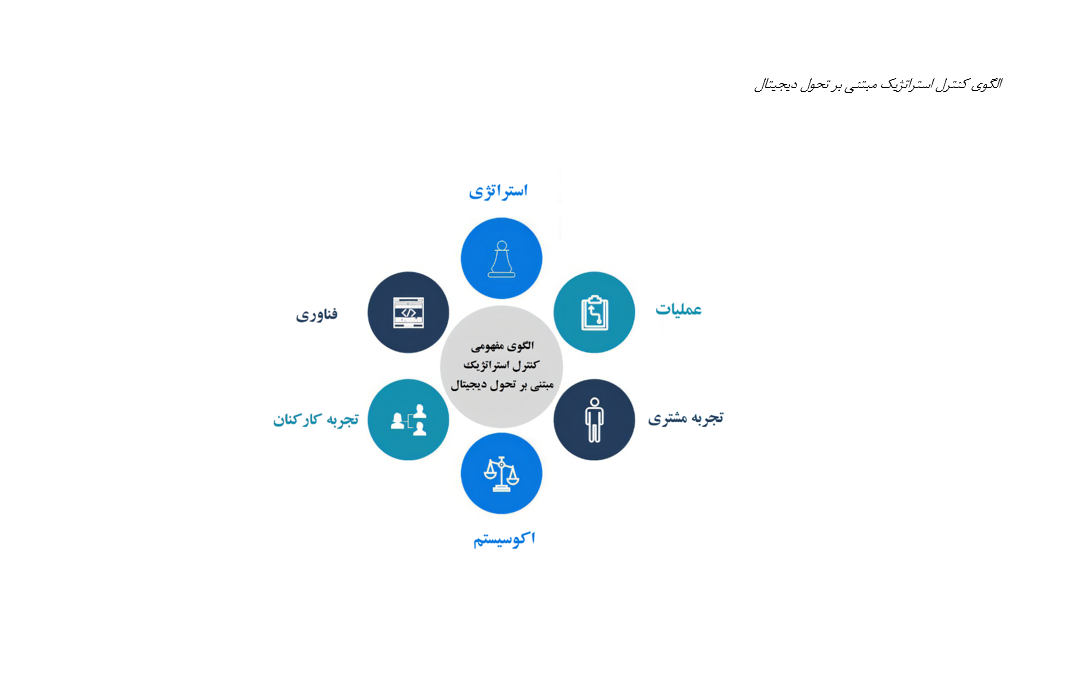Strategic Control Model Based on Digital Transformation
Keywords:
Strategic control, Digital transformation , Digitalization, StrategyAbstract
Strategic control is one of the most critical managerial responses to crises and environmental dynamism. Environmental turbulence arises due to the significant increase in competitiveness levels, the presence of volatile markets, and growing environmental complexity. The most significant impact of this turbulence is the intensification of uncertainty and the difficulty for companies in predicting key environmental variables. In recent years, an industrial revolution (Industry 4.0) has emerged, affecting all aspects of businesses, rooted in digital transformation. Since this transformation influences strategic decision-making in various areas, including customer experience, operational processes, and business models, it highlights the need for new strategic management tools. Therefore, it is essential to manage the opportunities and risks of digital transformation and leverage its capabilities and tools to revise strategy for digital transformation-based strategic control. Through a systematic review and qualitative analysis of the theoretical literature on digital transformation, six main dimensions were identified. Finally, using the meta-synthesis method, 18 components of strategic control were categorized within the six dimensions of digital transformation, leading to the introduction of a strategic control model based on digital transformation.
Downloads
References
Abdul, B. (2024). Assessing the Impact of Employee-Centric Digital Transformation Initiatives on Job Performance: The Mediating Role of Digital Empowerment. Strategic Management, 29(2), 5-18. https://doi.org/10.5937/straman2300057r
Adebayo, A. O., Chaubey, M. S., & Numbu, L. P. (2019). Industry 4.0: The Fourth Industrial Revolution And How It Relates To The Application Of Internet Of Things (IoT). J. Multidiscip. Eng. Sci. Stud, 5, 2478. https://www.researchgate.net/publication/331533011_Industry_40_The_Fourth_Industrial_Revolution_And_How_It_Relates_To_The_Application_Of_Internet_Of_ThingsIoT
Agrawal, A., Schaefer, S., & Funke, T. (2018). Incorporating Industry 4.0 in corporate strategy. In Analyzing the impacts of Industry 4.0 in modern business environments (pp. 161-176). IGI Global. https://doi.org/10.4018/978-1-5225-3468-6.ch009
Attaran, M., & Woods, J. (2019). Cloud computing technology: improving small business performance using the Internet. Journal of Small Business & Entrepreneurship, 31(6), 495-519. https://doi.org/10.1080/08276331.2018.1466850
Dumay, J., & Cai, L. (2015). Using content analysis as a research methodology for investigating intellectual capital disclosure: A critique. Journal of Intellectual Capital, 16(1), 121-155. https://doi.org/10.1108/JIC-04-2014-0043
Hafeznia, M. (2019). An Introduction to Research Methods in Humanities. SAMT (Organization for Research and Composing University Textbooks in the Humanities).
Joel, O. S. (2024). Navigating the Digital Transformation Journey: Strategies for Startup Growth and Innovation in the Digital Era. International Journal of Management & Entrepreneurship Research, 6(3), 697-706. https://doi.org/10.51594/ijmer.v6i3.881
Khashaei, V. (2015). Presenting a Classified Model of Strategic Control Tools. Strategic Management Thought Quarterly, 17. https://ensani.ir/fa/article/352578/
Kuteesa, K. N. (2024). Navigating the Digital Transformation Journey: Strategies for Startup Growth and Innovation in the Digital Era. International Journal of Scholarly Research in Multidisciplinary Studies, 4(2), 038-053. https://doi.org/10.56781/ijsrms.2024.4.2.0031
Liu, S. (2024). Study on the Impact of Digital Transformation on Green Total Factor Productivity. Frontiers in Business Economics and Management, 15(2), 331-334. https://doi.org/10.54097/rqfvs751
Liu, X. (2024). Why Do Employees (Not) Support Enterprise Digital Transformation? A Transactional Theory of Stress Perspective. Group & Organization Management. https://doi.org/10.1177/10596011241301811
Mehrkam, M., & Nasimi, Z. (2024). The Impact of Managerial Leadership Styles on Digital Transformation in the National Tax Administration. Smart Business Management Studies, 13(50), 263-297.
Mohammadpour, A. (2011). Meta-Methodology: Philosophical and Practical Foundations of Mixed-Method Research in Social and Behavioral Sciences (Third Edition). Sociologists' Publications.
Nabiyi, F., Shami Zanjani, M., & Garoosi Mokhtar Zadeh, N. (2024). Explaining and Developing the Content Dimensions of Digital Transformation Strategy. Strategic Management Studies Quarterly, 15(60), 23-47.
Nasih, M. Z. (2024). Digital Transformation: The Effect of Learning Management Systems in Developing Employee Digital Competence. Jurnal Ekonomi Bisnis & Entrepreneurship, 18(2), 604-613. https://doi.org/10.55208/z4bv1w35
Oberländer, A. M. (2024). Understanding the Influence of Digital Ecosystems on Digital Transformation: The OCO (Orientation, Cooperation, Orchestration) Theory. Information Systems Journal, 35(1), 368-413. https://doi.org/10.1111/isj.12539
Oliinyk, M. (2024). Digital Transformation of Management Processes in State and Public Organizations: Features, Directions, and Recommendations for Development. Management and Entrepreneurship Trends of Development, 1(27), 53-63. https://doi.org/10.26661/2522-1566/2024-1/27-05
Onesi-Ozigagun, O. (2024). Leading Digital Transformation in Non-Digital Sectors: A Strategic Review. International Journal of Management & Entrepreneurship Research, 6(4), 1157-1175. https://doi.org/10.51594/ijmer.v6i4.1005
Prado, L. S. D. (2024). BRK: Digital Transformation to Delight Consumers. Cadernos Ebape Br, 22(2). https://doi.org/10.1590/1679-395120230171x
Rahman Seresht, H., & Harandi, A. (2017a). Examining the Effect of Strategic Control of Corporate Governance on the Effective Leadership of Listed Companies in the Stock Exchange. Business Management, 9(3), 485-506. https://jibm.ut.ac.ir/article_63840.html?lang=en
Rahman Seresht, H., & Harandi, A. (2017b). A Model for Strategic Control of Corporate Governance Using the Classical Grounded Theory Strategy. Public Management Research, 10(37), 29-58. https://jmr.usb.ac.ir/article_3677.html?lang=en
Sarmad, Z., Bazargan, A., & Hejazi, E. (2019). Research Methods in Behavioral Sciences. Agah Publishing.
Wahyono, T. (2024). Digital Transformation in MSMEs in Indonesia: The Importance of Commitment to Change. International Journal of Social Service and Research, 4(01), 378-384. https://doi.org/10.46799/ijssr.v4i01.703
Zhang, Y. (2024). Mechanisms of the Impact of Enterprise Digital Transformation on Knowledge Sharing Behavior of Employees. 1(3), 309-318. https://doi.org/10.62517/jmsd.202412343
Zhang, Y. (2024). The Successful Factors for Digital Transformation in Project Management. Advances in Economics Management and Political Sciences, 79(1), 297-303. https://doi.org/10.54254/2754-1169/79/20241858
Zhou, W. (2024). Mechanisms Influencing the Digital Transformation Performance of Local Governments: Evidence From China. Systems, 12(1), 30. https://doi.org/10.3390/systems12010030

Downloads
Published
Submitted
Revised
Accepted
Issue
Section
License
Copyright (c) 2025 Rahim Zare; Mojtaba AbedianKhorasani, Vahid Khashei Varnamkhasti, Mehdi Haghighi Kaffash (Author)

This work is licensed under a Creative Commons Attribution-NonCommercial 4.0 International License.










